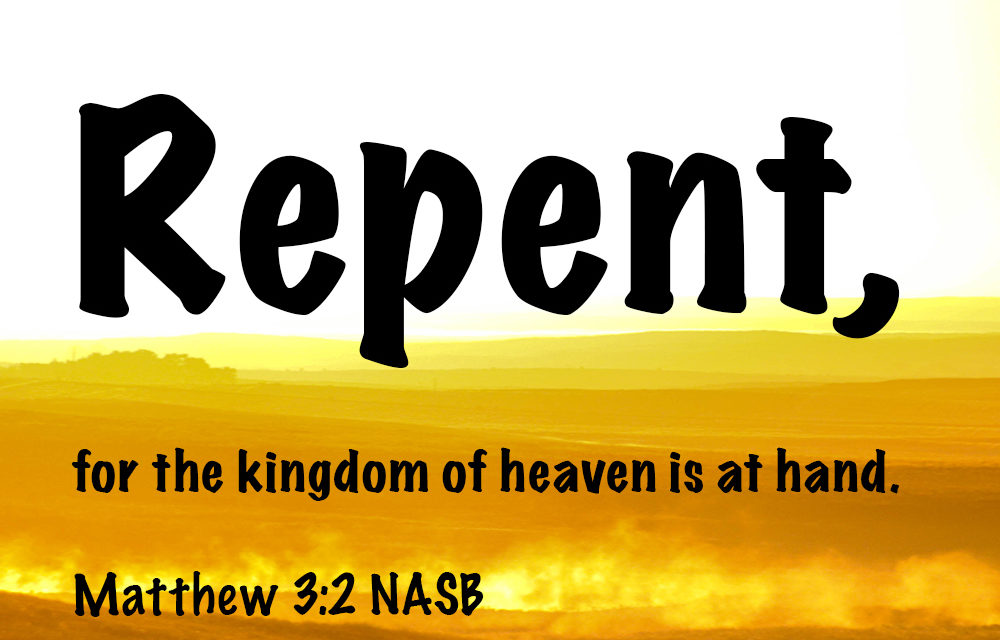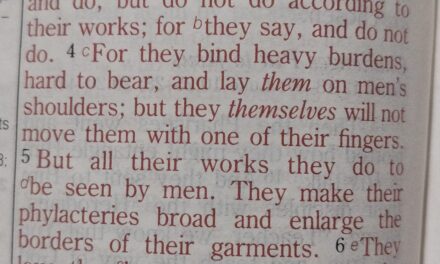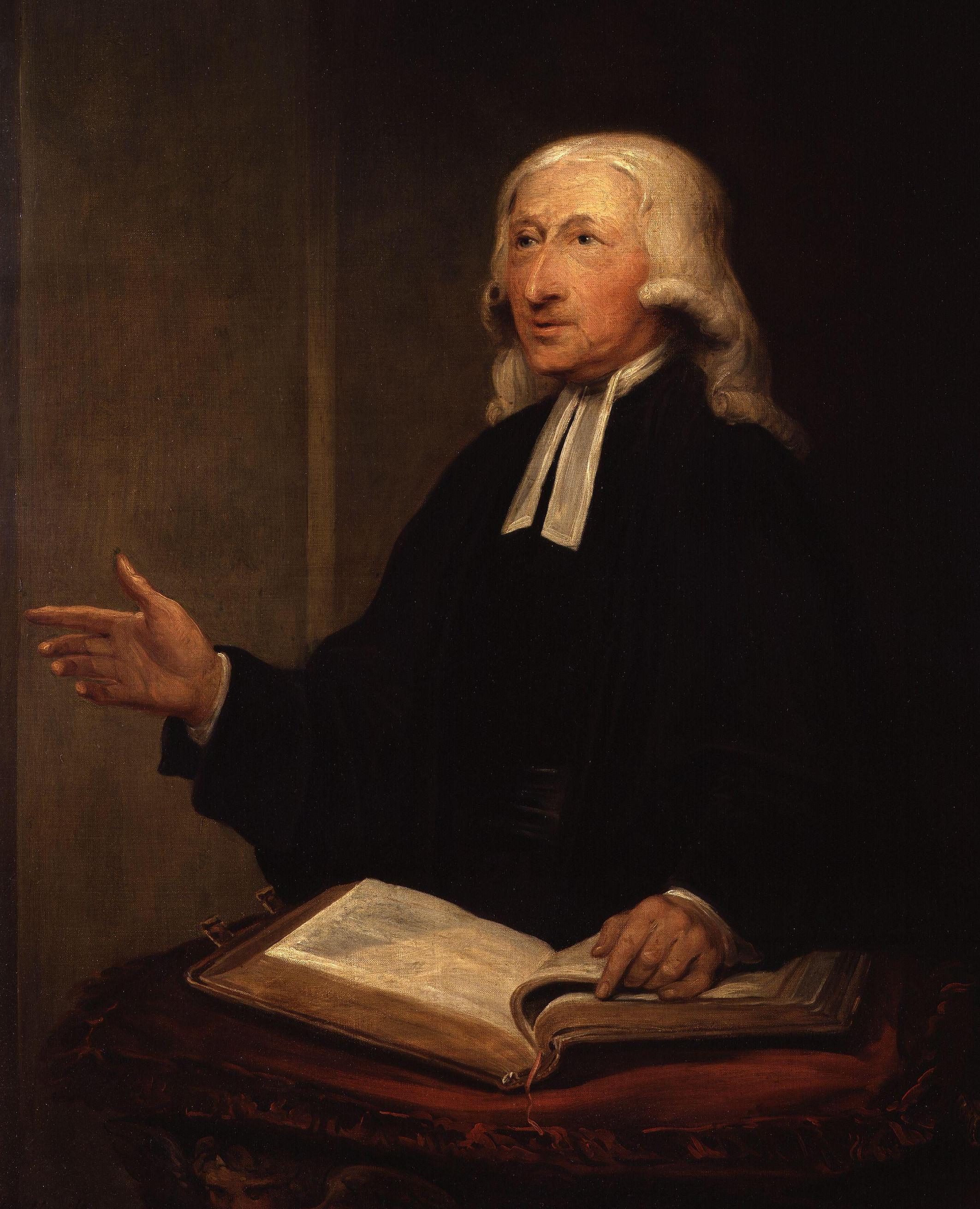The parable of the rich man and Lazarus points to earthly lives as a ‘mist that appears for a little while and then vanishes.’ That outward appearance does not match our inward conditions (James 4:14). The parable of the rich man and Lazarus warns us that when death comes knocking, there is only one thing that matters: our relationship with Jesus Christ (Matt 16:26, Mk 8:36). The parable of the rich man and Lazarus reminds us of Jesus’ teaching on the reality of Heaven and hell. Beyond the teaching about universalism, Jesus warned against hell, as did Paul, Peter, the writer of Hebrews, John, and Charles Wesley, among others. The parable of the rich man and Lazarus resonates with a multitude today who are complacent in their self-conviction that all is well with their soul because of the good works (Matt 7:23).
Doing good can make us better, but it will never make us perfect, just as human commendation does not amount to our spiritual conversion. The parable of the rich man and Lazarus, beyond generosity towards the poor, warns us that we cannot earn salvation by doing good, by church titles or by being religious, spiritual or by acquiring knowledge. Sadly, the rich man was indifferent to Lazarus begging at his gate. The rich man had no compassion, love or sympathy for the poor. In hell, he only remembered Lazarus as an errand boy, asking Father Abraham to send Lazarus to his family for them to repent. The rich man was just as user, using others to achieve their own agenda.
The rich man’s life was consumed by self-centeredness and religiosity. He made the wrong choice and suffered eternally (Luke 16:22-23). Lazarus lived all his life in poverty, but his heart was right with God. He died and was immediately taken to Paradise (v. 22). Paradise and ‘Abraham’s side’ refer to the place of spiritual rest and delight where those who die in a right relationship with God enter his presence and await the resurrection and the fulfilment of all God’s plan.
The parable of the rich man who finds himself in hell and Lazarus in the bosom of Abraham calls for our personal and corporate attention and renewal. Sadly, the rich man and the poor man die on the same day. Lazarus awakes to find himself in Heaven – and the rich man, ticked all the boxes, yet he awakes to find himself being tormented in hell. Riches, titles, or positions are not insurance against hell or Heaven. The rich man did not expect to find himself in hell, especially in a culture where people assumed wealth was a sign of blessing from God.
The parable of the rich man and Lazarus refutes most common arguments and misconceptions about hell, especially the claim that sending people to hell is contrary to God’s character, because He is a God of love. The rich man, beyond his expectations, was surprised to be in hell because he was a devout religious person, a child of Abraham, and perhaps a generous donor to religious works in the synagogue and temple, where he prayed, sang hymns, and recited psalms. The rich man begs Abraham to send a warning about hell to his brothers, but it was too late. The rich man in hell knows that repentance, turning away from sin, is the gateway through which we come to accept Jesus as our Lord and Saviour. The rich man cries out in hell, “Father Abraham, have mercy on me” (Luke 16:24). Indeed, the rich also cry. The rich man who had everything – money, power, knowledge, and religious practice realised too late that everything on which he had built his life had failed him. His wealth failed him. His luxury failed him. His religiosity failed.
It was too late for the rich man before God, and completely helpless. He cried for mercy too late. Jesus tells the parable to call for personal and corporate repentance and renewal. Beloved, are you just trusting in your wealth or power, religious or spiritual practices? Be warned and repent today so that you will not find yourself crying for mercy that is no longer available. Jesus is calling us to accept our helplessness and ask for mercy and forgiveness that Jesus offers to us through the Cross.
There is a Charles Wesley hymn that calls for personal and corporate repentance and renewal. Let us prayerfully sing it together:
Where shall my wondering soul begin?
How shall I all to heaven aspire?
A slave redeemed from death and sin,
a brand plucked from eternal fire,
how shall I equal triumphs raise,
or sing my great deliverer’s praise?
O how shall I the goodness tell,
Father, which thou to me hast showed?
That I, a child of wrath and hell,
I should be called a child of God!
Should know, should feel my sins forgiven,
blest with this antepast of heaven!
And shall I slight my Father’s love,
or basely fear his gifts to own?
Unmindful of his favors prove,
shall I, the hallowed cross to shun,
refuse his righteousness to impart,
by hiding it within my heart?
Outcasts of men, to you I call,
harlots, and publicans, and thieves;
he spreads his arms to embrace you all,
sinners alone his grace receive.
No need of Him the righteous have;
he came the lost to seek and save.
Come, O my guilty brethren, come,
groaning beneath your load of sin;
his bleeding heart shall make you room,
his open side shall take you in.
He calls you now, invites you home:
Come, O my guilty brethren, come.
For you the purple current flowed
in pardon from his wounded side,
languished for you the eternal God,
for you the Prince of Glory died.
Believe, and all your sin’s forgiven,
only believe–and yours is heaven.











Recent Comments